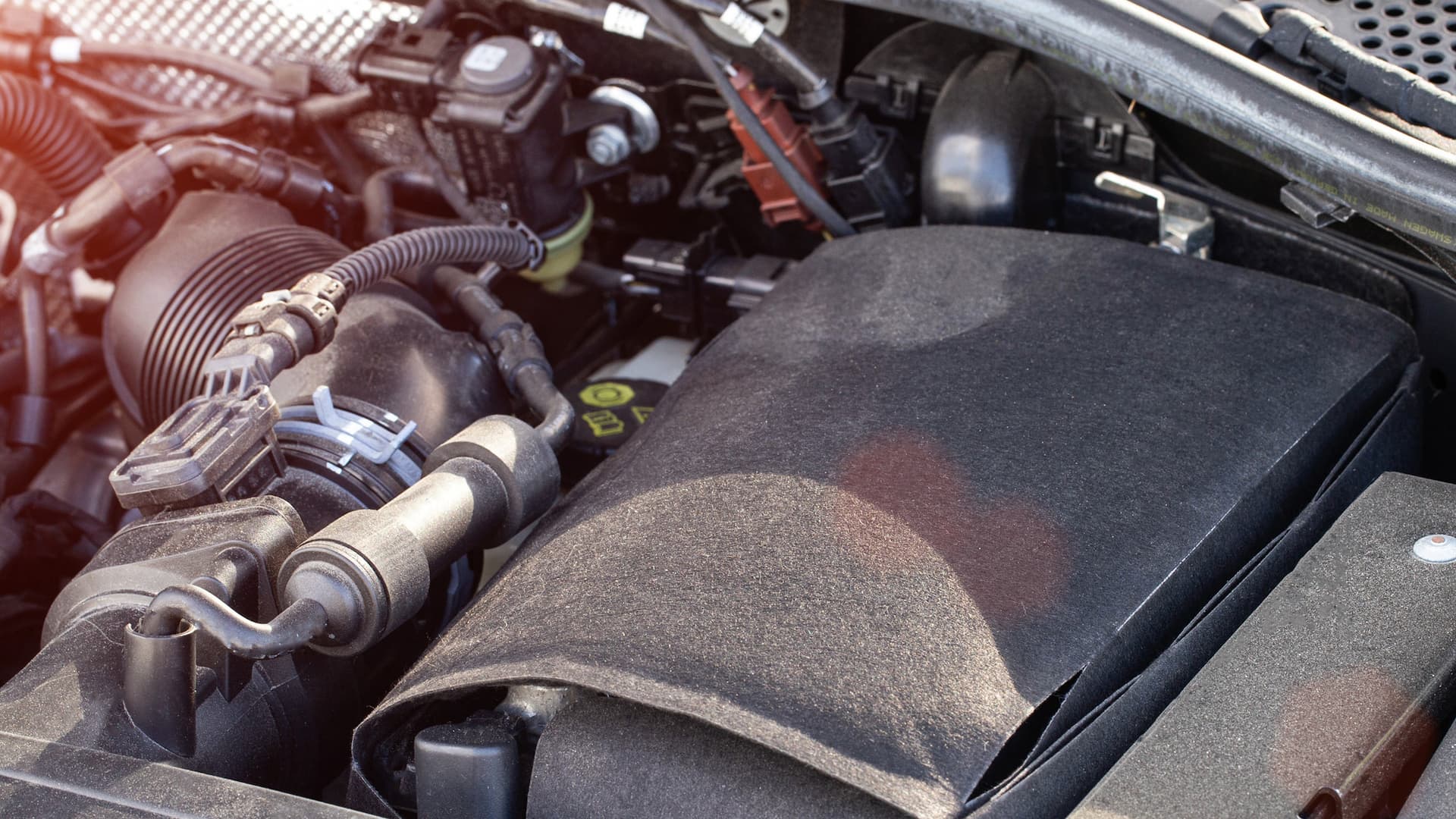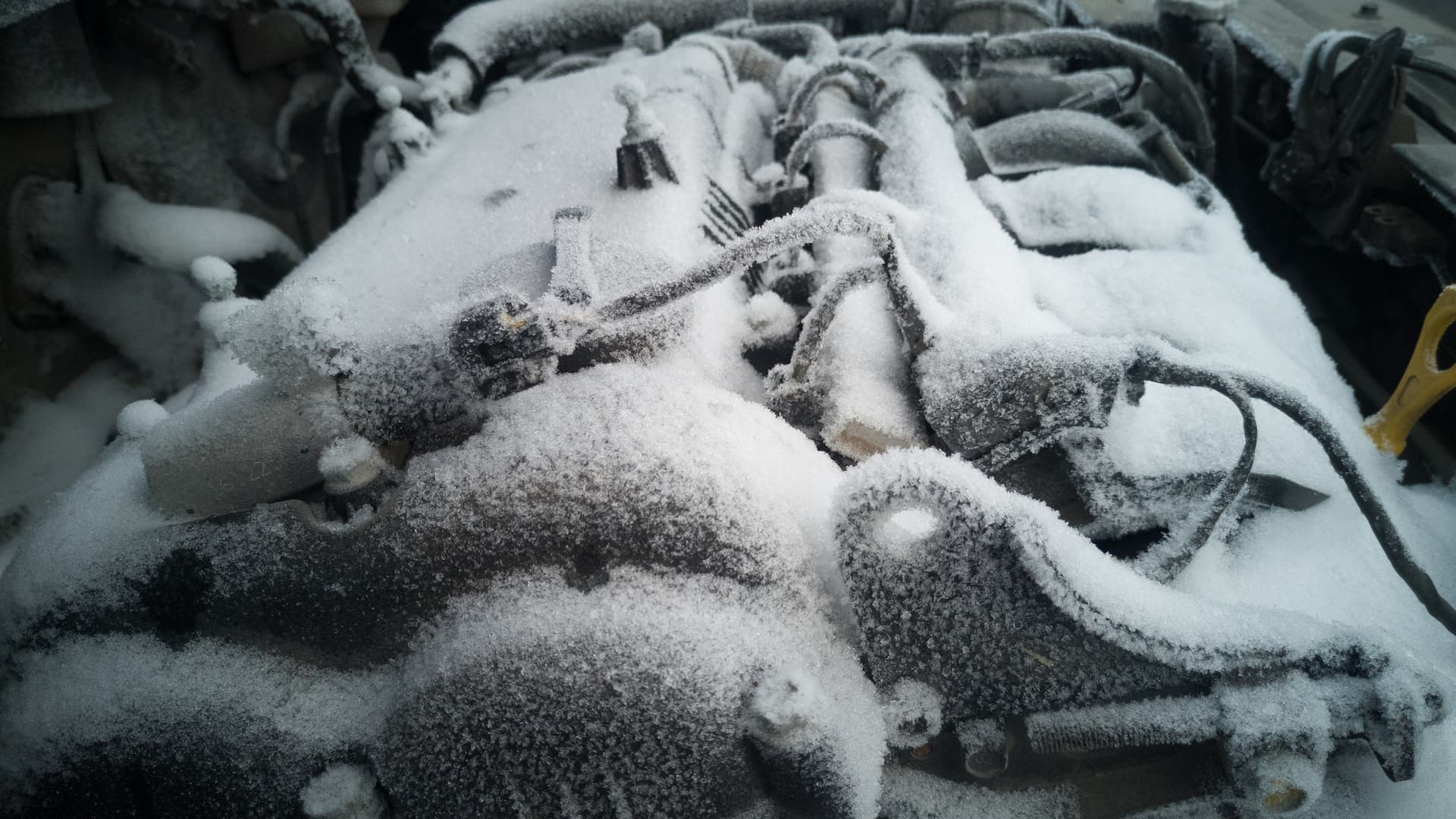10 Possible Causes Why Your Check Engine Light is On
Some common reasons for an illuminated CEL are:
1. Loose Gas Cap
The gas cap seals the engine’s fuel system to maintain proper pressure and prevent fuel from evaporating. If the gas cap is loose or broken, it disrupts the pressure balance in the Evaporative Emission Control System (EVAP), triggering the CEL.
2. Faulty Oxygen Sensor
The O2 sensor monitors the amount of oxygen in the exhaust gases and sends this data to the ECU. But if your vehicle has a faulty oxygen sensor, it’ll prompt the ECU to activate a flashing Check Engine Light.
3. Weak Car Battery
Your battery powers the car’s electrical systems and provides the necessary charge to start the engine. When the battery weakens, it may struggle to supply adequate power to the vehicle’s sensors and electrical components, potentially triggering the CEL.
4. Engine Misfire
The engine ignites a precise air-fuel mixture to run the vehicle. Misfires, caused by worn spark plugs, clogged fuel injectors, failing ignition coils, or vacuum leaks, disrupt the combustion process, causing a flashing Check Engine Light.
5. Faulty Mass Airflow Sensor (MAF)
The mass airflow sensor measures the air entering the engine. But if it has faulty wiring, the sensor can send incorrect information about the airflow. The inaccurate data can cause the ECU to miscalculate the fuel needed for proper combustion, leading to an imbalanced air-fuel ratio. This can affect engine performance, impact fuel economy, and increase emissions, triggering the CEL.
6. Catalytic Converter Issues
The catalytic converter reduces harmful emissions by converting exhaust gases into less toxic substances. When this catalytic converter malfunctions, it increases emissions, triggering the ECU to activate the CEL.
7. Worn Timing Belt
The timing belt ensures the engine’s camshaft and crankshaft work in perfect synchronization, maintaining proper valve timing for efficient combustion. However, a worn timing belt can disrupt this engine timing, leading to a Check Engine Light issue.
8. Damaged Exhaust Pipe
The exhaust pipe typically channels harmful exhaust fumes away from the engine and reduces combustion-related noise. If the pipe is damaged, it can increase emissions and reduce fuel efficiency. This may also trigger the Check Engine Light if the issue affects emissions or engine performance significantly.
9. Low Fluid Levels
Oil lubricates engine components, while coolant regulates the engine’s temperature. Insufficient oil and coolant levels can lead to overheating, reduced fuel economy, and system inefficiency, prompting the CEL to activate.
10. Cooling System Issues
The vehicle’s cooling system maintains optimal engine temperature. When components like the thermostat or radiator fail, it can lead to overheating, which may activate the CEL.



